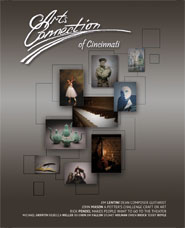Unlike most modern mega-bookstores, small locally owned shops tend to reflect the character and personalities of their owners. Perhaps that’s why a great urban store – a place whose shelves sag with a remarkable selection of high-quality reading materials, maps, prints, collections of art and often hard-to-find antique volumes, presided over by people of encyclopedic knowledge and exquisite taste – is a book venue that people can remember and appreciate.
Jim Fallon, owner of the Ohio Book Store – one of Cincinnati’s oldest continuously operated used book stores opened in 1940 – has been dealing in thousands of old and rare books for 55 years. In the evenings, he likes to sit in a chair, reach for one of his old friends and browse through the pages. “I like the idea of the old books, the love and dedication that went into making a book at that time,” Fallon says. “It would take a man to write a book up to 20 years. It was a labor of love, now it’s a labor of money.”
Jim Fallon’s life time dedication to the Ohio Book Store began when he was 13. He would leave the school in the afternoon, get on the bus from Norwood and come downtown to shelf books and sweep the floor. Back then, Cincinnati was a great downtown retail community that drew shoppers from the surrounding areas into its little specialty shops. In 1961, as a high school senior, Fallon decided to continue working in the book store on a permanent basis. In 1971, he purchased the Ohio Book Store from Mr. Hardwick – its first owner and a founder.
The book industry has changed dramatically since the Ohio Book Store opened its doors. Back in the 1950s, the market in used and rare books was healthy and functioning. The first half of the 1900s marked the end of the “Golden Age of Books,” a period in US book history since the 1800s when books were the key source of entertainment and enlightenment. The 1960s and 1970s brought the first chain bookstores to shopping malls and moved the consumers for books to suburbia that resulted in a declining demand for used books in urban areas. More commercialized alternatives pushed out previous means of bookselling, and many urban books stores went out of business.
Such great used book stores as Leary’s in Philadelphia (known as the “oldest book store in the United States”), Lowdermilk’s in Washington, Cleveland’s Kay’s and all but one of the New-York’s 48 legendary Book Row’s stores (except the Strand, the sole survivor) came to an end as many others across the nation.
Despite declines in the used book industry and the Cincinnati retail market, the Ohio Book Store has managed to survive and remain a viable business.
Please read full article in Winter issue


